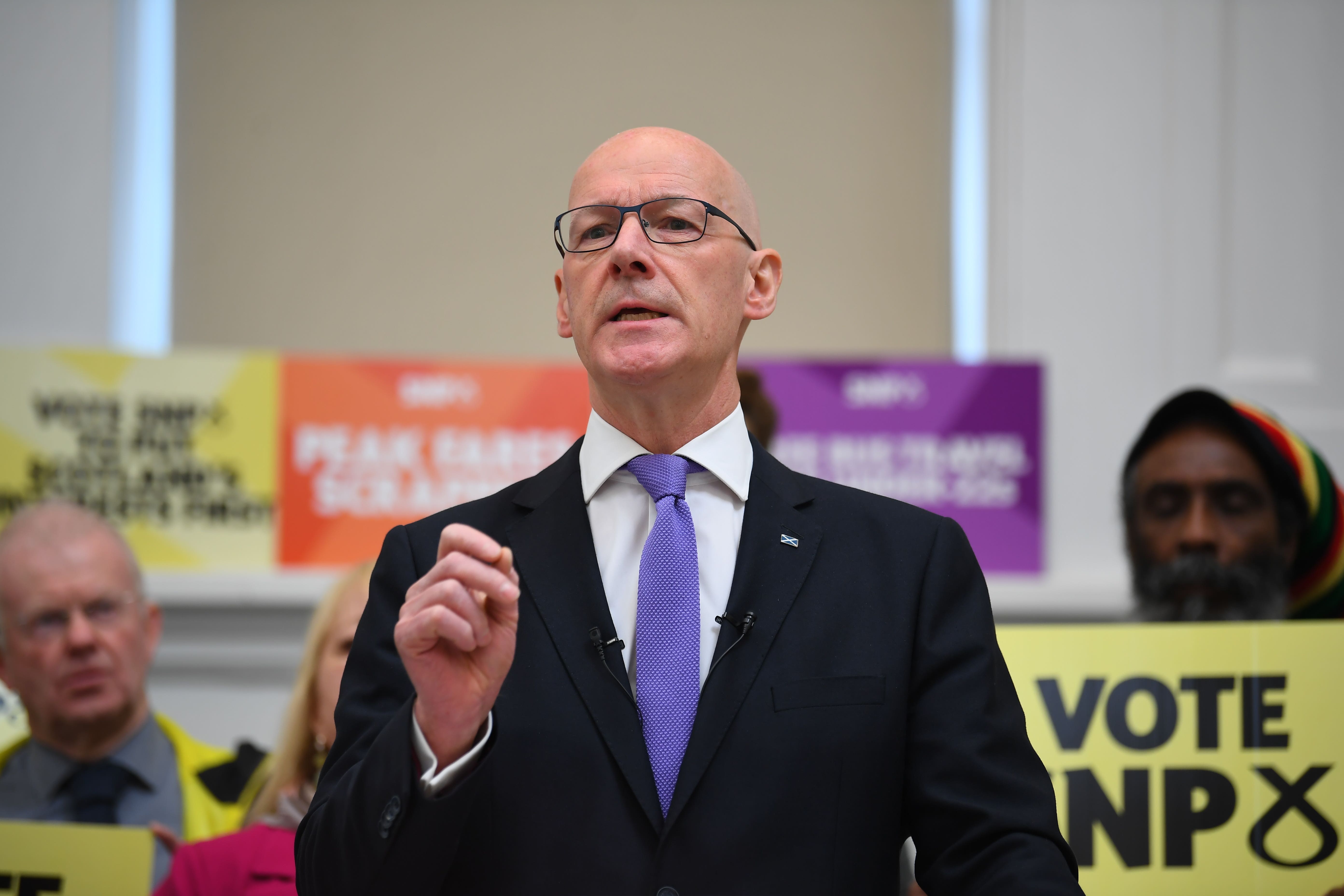Independent Scotland would not resort to austerity, says Swinney
The First Minister and SNP leader was speaking on the BBC’s Panorama programme.

Your support helps us to tell the story
From reproductive rights to climate change to Big Tech, The Independent is on the ground when the story is developing. Whether it's investigating the financials of Elon Musk's pro-Trump PAC or producing our latest documentary, 'The A Word', which shines a light on the American women fighting for reproductive rights, we know how important it is to parse out the facts from the messaging.
At such a critical moment in US history, we need reporters on the ground. Your donation allows us to keep sending journalists to speak to both sides of the story.
The Independent is trusted by Americans across the entire political spectrum. And unlike many other quality news outlets, we choose not to lock Americans out of our reporting and analysis with paywalls. We believe quality journalism should be available to everyone, paid for by those who can afford it.
Your support makes all the difference.An independent Scotland would focus on raising revenue rather than resorting to austerity, the First Minister has said.
John Swinney has repeatedly castigated Labour and the Conservatives during the election campaign, claiming both parties are refusing to level with the public that £18 billion of spending cuts are required.
The figure was drawn up by the Institute for Fiscal Studies (IFS), and the same think tank has also set its sights on the First Minister’s chief political aim.
Ahead of the 2021 Holyrood election, IFS director David Phillips said an independent Scotland would need to “cut its cloth to fit the size of its own purse”.
But speaking on the BBC’s Panorama programme – which is interviewing each of the UK’s political leaders ahead of the General Election on July 4 – the First Minister rejected the idea that austerity could be required.
“No, I don’t accept that,” he said.
“I think anyone that looks at my track record, I was 10 years the finance minister of Scotland, and I ran a balanced budget.
“I knew how to control money, I knew how to raise revenue, I knew how to make sure we lived within our means.
“So, I accept that an independent Scotland would have to exercise financial stability and fiscal sustainability.
“All of those considerations have to be part of the discussion about independence, but it’s an obligation of government to make sure that’s done properly.
“Of course, part of what we’re wrestling with today is the fact that the United Kingdom government of Liz Truss spectacularly didn’t do that and caused the type of increase in mortgages that people are wrestling with in Scotland today.
“What the Institute for Fiscal Studies is saying in their analysis of Scotland’s finances, they look at Scotland’s finances within the United Kingdom, but they also accept, and I think it’s important to accept this, that as an independent country, we would have much more flexibility and manoeuvrability as a country to improve our economic performance.”
The First Minister claimed GDP per head had risen faster in Scotland than the rest of the UK since 2007, while the productivity gap has “substantially, if not entirely” closed.
He added: “What (being) an independent country allows us to do, and if you look at other small, European, independent countries, they’ve got stronger economic performance than the UK, and Scotland would be in a position to emulate that.”